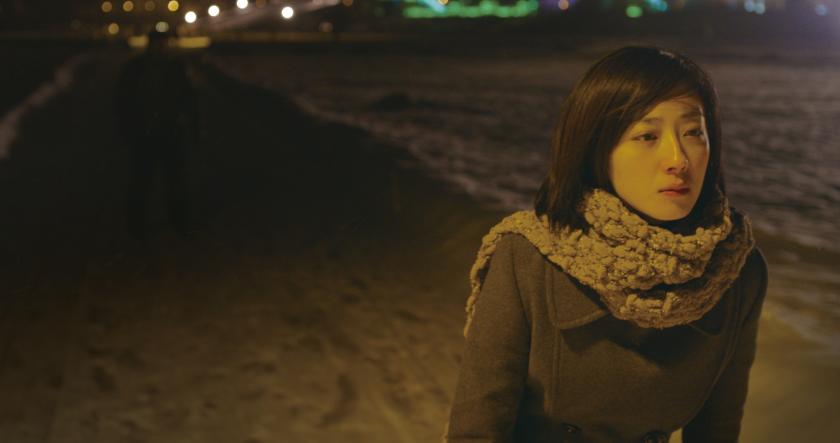A riddle, wrapped in a mystery, inside an enigma. Winston Churchill’s famous words on Russia serve as a very apt verdict on Black Coal, Thin Ice (Bai ri yan huo), the third film from Chinese director Diao Yinan. Its noir detective style pays homage to classic Hollywood tropes, but this is an unapologetically arthouse piece that impresses most for its gloriously dark visuals: it certainly captivated last year’s Berlinale jury, winning the Golden Bear there over Richard Linklater's Boyhood and other more approachable fare.
Viewers may well need more than one watch to even attempt to explicate Yinan’s story, so involved are its interconnecting plot-loops, but it’s worth the effort. The setting, an anonymous northern Chinese industrial town, is as far from more usual cinematic associations of that country as can be imagined. It could just as well be somewhere like Iceland, or any place where the sun rarely shines: I don’t think it comes out here once.
That investigation concludes with a gruesome shoot-out in a frankly surreal hair salon
We first encounter the film’s hang-dog, loping detective protagonist Zhang (Liao Fan, winner of the Best Actor award at Berlinale 2014) back in 1999 when he’s investigating a gruesome murder that has seen human body parts turning up in the works of various coal-processing factories (that explains the first half of the title); he’s also, unpromisingly, in the throes of a bruising divorce. Given that the factories are at considerable distances from one another, it’s more than mysterious how these human remains have got there. That investigation concludes with a gruesome shoot-out in a frankly surreal hair salon that’s absurdly, hypnotically comic, even as it leaves Zhang wounded and others of his fellow officers killed. It’s a scene (pictured below) in rare, phantasmogoric colour that director Yinan manages utterly compellingly.
Five years later, with Zhang no longer in the service and working instead as a security guard, hitting the bottle big time, the same kind of body parts start appearing again. A chance meeting with a former police colleague sees him resuming the investigation, this time unofficially, and drawn to the widow of the first murder victim (compellingly played by Taiwanese star Gwei Lun Mei, a real femme fatale). She’s working in a laundry shop, where Zhang gradually establishes a tentative relationship with her. They go skating on night-time rinks (hence, the second part of the title, main picture), and a somehow compulsive bond develops between them.
 It’s a relationship that Yinan handles so elliptically and obliquely, leaving us guessing until the final scene quite what’s been happening, and even then not quite sure what exactly has happened. In between, the director also delivers a very acute analysis of his rapidly changing homeland, with the contradictions of "New China" brought to the fore.
It’s a relationship that Yinan handles so elliptically and obliquely, leaving us guessing until the final scene quite what’s been happening, and even then not quite sure what exactly has happened. In between, the director also delivers a very acute analysis of his rapidly changing homeland, with the contradictions of "New China" brought to the fore.
It’s undeniably all on the bleak side, with a hardly definable sense that little is right in this human landscape, that resounds all the more powerfully for the fact that Yinan spells nothing out. Formally, Black Coal… is captivating: the director and his cinematographer Dong Jinsong move between long shots and more frequent tight ones, with as broad a palette of muted, melancholy colours as can be imagined. There’s every possible shade of darkish green and mustard yellow, ochres and olives, varied with deep blues and night greys. It all ends with day-time fireworks (that was the film’s original Mandarin title), a contradiction that perfectly suits this immaculately designed work.
The last Chinese-language film to reach British screens, Stray Dogs, proved very opaque indeed, style over substance. The visual flair here is plentiful but, plot obliquity notwithstanding, Yinan’s film rather more repays the effort.
Overleaf: watch the trailer for Black Coal, Thin Ice















Add comment